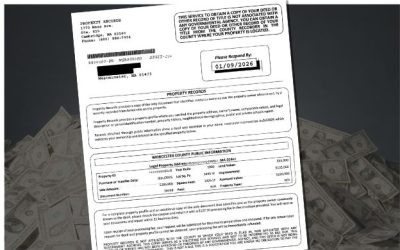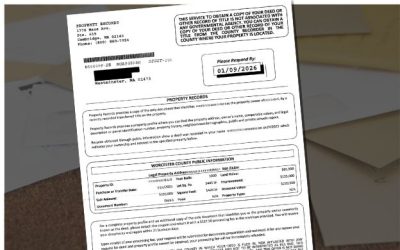What the FBI, IRS, and Homeland Security Could See in Your Closing Docs
How Your Paper Trail Might Raise Red Flags — And What You Can Do About ItYour Closing Packet Could Be a Federal File — Here’s Why
When you’re finalizing a real estate transaction, your focus is likely on the price, terms, and closing date — not on what a federal agency might find in your paperwork. But if certain conditions apply, your stack of signed documents could become part of a federal investigation.
From title fraud to suspicious wire transfers, real estate closings contain exactly the kind of data federal agencies use to detect fraud, money laundering, or foreign interference. Let’s break down the key documents that could raise red flags — and how to keep your transaction clean.
Settlement Statements (CD/HUD-1): Show Me the Money
These documents detail the financial anatomy of your transaction — where the money is coming from and where it’s going.
Agencies like the IRS Criminal Investigation Division (IRS-CI) and Homeland Security Investigations (HSI) use these to detect:
- Undisclosed cash sources
- Overstated or fake expenses
- Unusual wire transfers or third-party contributions
IRS-CI investigates tax evasion and unreported income often spotted through property records.
Learn how IRS-CI tracks financial crimes through real estate
Power of Attorney or Signature Authority: Who’s Really Involved?
Documents granting someone else signing authority — especially in cash or trust purchases — can prompt FBI interest if:
- The grantor isn’t properly identified or verified
- A straw buyer is suspected (someone buying on behalf of an undisclosed party)
- The purchase is connected to shell companies with no clear owner
These red flags are commonly tied to fraud and money laundering investigations.
Read the FBI’s guidelines on common real estate fraud patterns
Proof of Funds or Bank Letters: Show Your Work
Cash buyers are often asked to show proof of funds, but not all banks or letters are equal in the eyes of compliance officers.
Federal agencies may scrutinize:
- Large transfers from offshore accounts
- Lack of financial institution transparency
- Inconsistencies between stated income and assets
Homeland Security Investigations (HSI) targets international financial crimes — especially involving real estate.
See how HSI investigates financial crimes tied to real estate
Entity-Based Transactions: LLCs, Trusts, and Shell Games
When a home is purchased through a legal entity — especially in cash — the title and closing documents must disclose the “beneficial owner.”
If they don’t, the transaction may:
- Violate FinCEN Geographic Targeting Orders
- Trigger FinCEN reporting requirements from title companies
- Be flagged for money laundering or sanctions evasion
Review FinCEN’s current rules for real estate ownership transparency
Tax Documents: When Closings and Capital Gains Collide
The IRS reviews real estate closings for unreported capital gains, under-the-table transactions, or misuse of tax exemptions.
Closings can trigger audits when:
- Sale proceeds are underreported
- A home is falsely claimed as a primary residence
- Form 1099-S isn’t issued when it should be
Sellers attempting to avoid tax obligations through title maneuvering or “gift-of-equity” deals should be cautious.
Understand when Form 1099-S is required in real estate transactions
What You Can Do (Besides Panic)
You don’t have to be laundering millions or working for a foreign government to attract unwanted attention. In most cases, red flags are raised by incomplete, inconsistent, or unexplained paperwork. Here’s how to stay ahead:
- Work with a closing attorney who understands both the legal and compliance landscape
- Avoid cutting corners on financial disclosures or title documentation
- Be honest and thorough when structuring transactions involving trusts, foreign buyers, or LLCs
Want to Keep the Feds Out of Your Closing?
Our team at The Law Office of David R. Rocheford, Jr., P.C. ensures every “i” is dotted and every “t” is lawyer-checked. We review your paperwork with a compliance lens — so you don’t accidentally invite scrutiny.
Providing title, escrow, closing and settlement services to clients throughout Massachusetts and New Hampshire
From Our Clients
Recent News
What Real Estate Agents Need to Know About FinCEN’s New Residential Real Estate Reporting Rule (Effective March 1, 2026)
SUMMARY: Starting March 1, 2026, FinCEN’s Residential Real Estate Rule requires a Real Estate Report for certain non-financed residential transfers where the buyer is an entity or trust (common “cash/opaque ownership” scenarios). Real estate agents do not file the...
Why New Homeowners Get Targeted After Closing
For many buyers, one of the most surprising parts of homeownership happens after the closing is complete: the sudden increase in mail related to their property. This isn’t accidental—and it isn’t unique to any one company or offer. It’s the predictable result of how...
New Homeowners Beware: “Recorded Deed” Letters That Aren’t What They Seem
Buying your first home is exciting—and it often comes with a mountain of paperwork. Unfortunately, it can also make you a target for misleading solicitations that appear official and urgent, but offer nothing you actually need.One of the most common examples we see...








